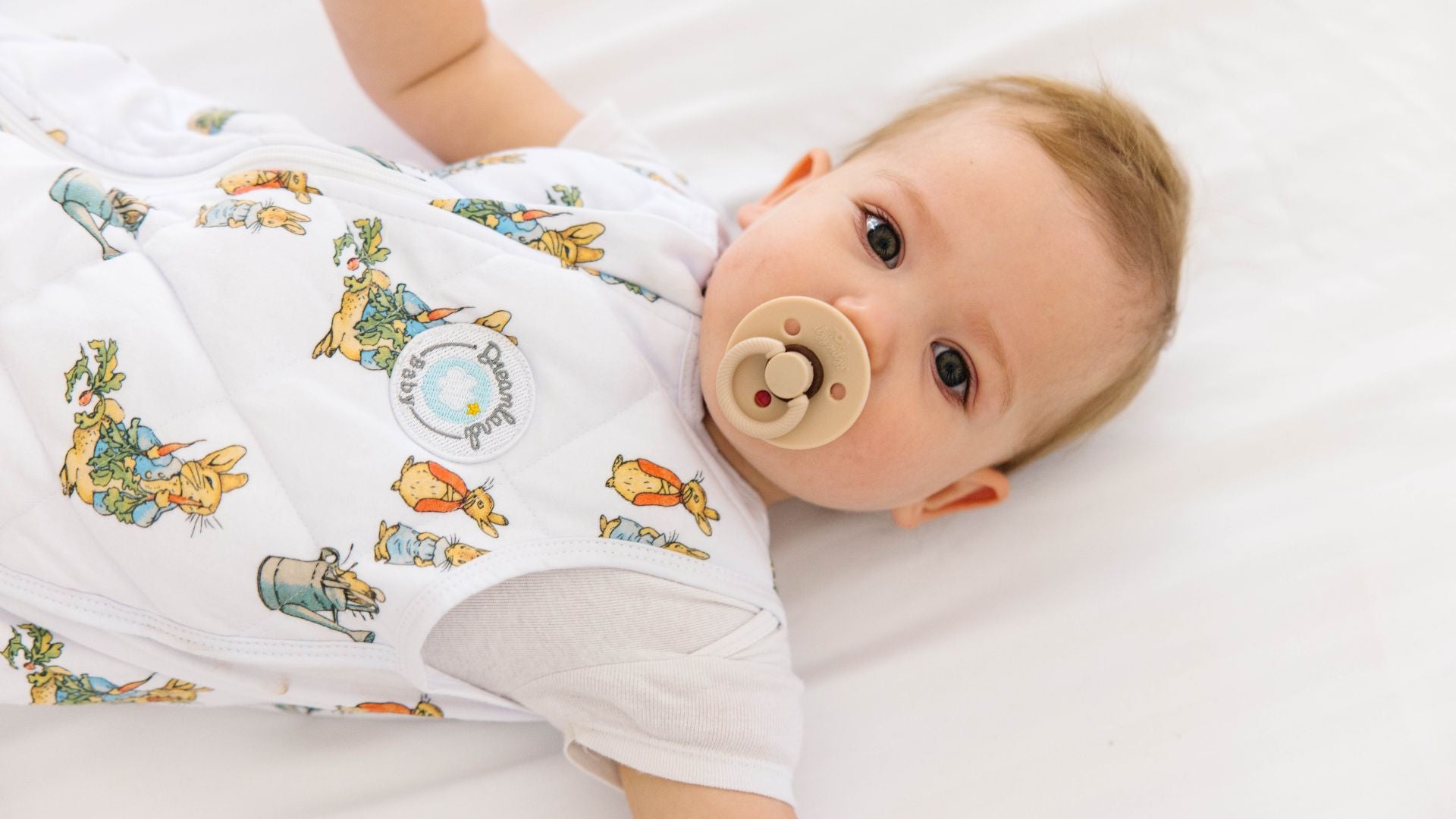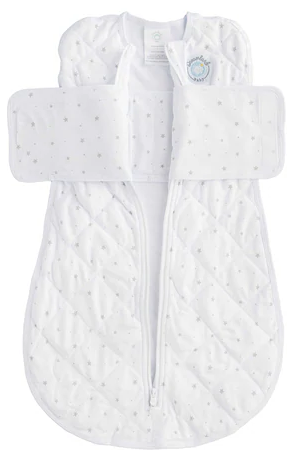Discussing the best sleep routines for 10-month-old babies
Sleep schedules for babies are constantly changing. If you’ve reached the 10-month milestone, congratulations! You’re probably wondering where the time has gone as your little one is growing so fast. At 10-months you’re rapidly approaching toddlerhood. So, how much should your 10-month-old be sleeping? And at what times of the day? Keep reading to learn everything you need to know about 10-month-old sleep schedules.
What is the recommended sleep schedule for a 10-month-old?
A 10-month-old should be sleeping about 13.5 hours a day. This includes 11-12 hours of sleep at night and 2-3 hours during the day divided into two naps. They should be staying awake for 3 to 3 ¾ hours between sleep periods.
A sample 10-month-old baby sleep schedule should look something like this:
- 6:00 AM: Baby wakes up
- 9:00 – 10:15 AM: Baby’s first nap
- 1:45 – 3:00 PM: Baby’s second nap
- 6:45 PM: Baby goes to sleep
How do you get a 10-month-old on a sleep schedule?
You can get your 10-month-old on a sleep schedule by putting them down for naps and bedtimes at the same time each day. Easier said than done though. Life may not be the same everyday, but strive for consistency. Try using a weighted sleep sack or swaddle to get your baby to sleep faster and keep them asleep longer.
Is there a 10-month sleep regression?
Sleep regression often occurs in babies at the 10-month mark due to the cognitive development they are experiencing during this time. They are becoming more fascinated with what’s around them. As a result, it’s harder for their minds to shut down for sleep.
Symptoms of 10-month sleep regression include fussiness during sleep time and less sleep overall. If your baby is starting to have a harder time calming before bed, try incorporating a weighted sleep sack or swaddle into your routine.

Shop Dreamland Baby
How can I help my 10-month-old with sleep regression?
Here are a few things you can try if sleep regression is interfering with your sleep schedule for 10-month-old:
Stay on schedule: Changing your baby’s sleep schedule will only make matters worse. Stick with the plan and your baby will eventually get back on track.
Strive for consistency: As a parent your child is your whole life, but in reality you have other obligations too. Be as consistent as you can be, but also allow for life to happen around you.
Let your baby cry it out: If your baby is crying in the middle of the night, allow them to self-sooth. If you feel you must visit them, keep it brief. Avoid taking them out of their crib.
Get your baby ready for sleep with a routine: Get your baby relaxed before sleep time by bathing them or engaging them in another calming activity. Avoid feeding them too close to bedtime as this will promote wakefulness.
Maintain a sleep-friendly environment in the bedroom: By keeping the room dark and cool your baby can sleep comfortably. You can also use a white noise machine to soothe your baby.
Use a weighted sleep sack or swaddle: Weighted sleep sacks and swaddles can help calm your baby before bed. It can also let them know bedtime is coming. They will feel comforted from the sleep sack or swaddle which can help you overcome regression and get your baby to sleep.
What time should a 10-month-old typically go to bed?
A 10-month-old should typically go to bed around 7 PM. However, you may have to shift bedtimes and nap times around to find the sweet spot for your baby.
What is the best nap schedule for a 10-month-old?
Ideally, your 10-month-old will go down for two naps per day. They should nap for a total of 2-3 hours per day, broken into two naps. In a perfect world, one nap is in the morning (around 9:00 AM) and the second nap is in the afternoon around (2:00 PM).
What should parents expect in the next stage of sleep after 10 months?
A baby’s sleep schedule will not change much between the 10 month and one year mark. In fact, babies may continue needing 11-14 hours of sleep a day with 2 nap times right up until they are 2. But generally, parents will see a reduced need for sleep around 18 months.
There is no set standard when it comes to the amount of sleep your child needs and when their sleep patterns will change. It varies from child to child. Here are some signs that will tell you your baby doesn’t need as much sleep.
- Your baby is happy and alert during sleep times
- Your baby is taking shorter naps
- Your baby wakes up earlier in the morning
- Your baby resists settling down
- Your baby is waking up in the middle of the night
Tips for 10-month-old sleep schedules:
It’s not always easy to keep a child on a 10-month-old baby sleep schedule. If your baby is not going down for naps and sleep times and falling asleep when they shouldn’t be, here are some tips for getting them back on track.
#1. Maintain a routine: It’s important to maintain your routine regardless of how your baby is reacting. Eventually, they will get back into the swing of things.
#2. Give them a snuggly toy: Babies often have difficulty sleeping due to separation anxiety. A cuddly toy can comfort them, so they are less likely to fuss when a parent leaves the room.
#3. Get the right balance on napping: Some parents may be tempted to cut back on nap time if their baby is not sleeping through the night. Others may let their baby sleep too much during the day if they aren’t waking up when naptime is over. It’s key to strike the right balance and keep them on schedule.
#4. Keep babies in the crib: It’s best to let babies sleep in their cribs as this will allow them to get a sounder sleep. Although babies may occasionally fall asleep in their car seat or stroller, this should be avoided if possible. In addition, if your baby wakes during sleep time and cries, let them self-soothe in the crib.
#5. Address teething issues: Your baby may be experiencing teething issues that are keeping them awake. There are many methods parents can use to reduce teething pain including gels, medications and giving them a cold toy to bite on.
#6. Try a weighted sack, blanket, or swaddle: It’s important to make babies feel comfortable and secure at sleep time. A weighted blanket, sack or swaddle will produce a womb-like environment that lulls your baby to sleep. It will help them fall asleep faster and get a better quality of sleep.
For the best weighted sleep sacks, swaddles, and blankets, you can count on Dreamland Baby. A consistent bedtime routine and quality sleep are essential for developing a consistent sleep schedule. It wasn’t until baby #4 that Tara Williams struggled with getting her baby to sleep and keeping him asleep. After trying what felt like everything, she took matters into her own hands and Dreamland was born.
Dreamland’s mission is to use the highest quality materials and adhere to stringent safety standards to craft weighted sleep solutions that help babies feel calm, fall asleep faster and stay asleep longer. Dreamland offers a Weighted Sleep Sack and Weighted Swaddle, both featuring our CoverCalm Technology that evenly distributes weight from your baby’s shoulders to toes to naturally reduce stress and increase relaxation. Dreamland can make putting your baby to sleep a breeze, thus making it easier to get on a consistent schedule.



Share:
Does Swaddling Prevent SIDS?
When do Babies Stop Wearing Onesies?